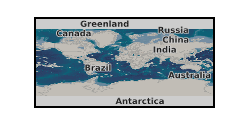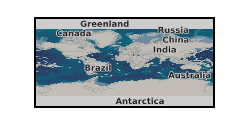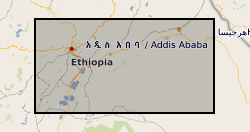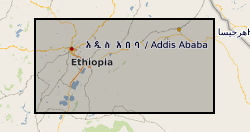Overseas Development Institute
Type of resources
Topics
Keywords
Contact for the resource
Provided by
Years
Formats
Representation types
Update frequencies
-

The data are transcripts of qualitative community surveys carried out in Amuria (A) and Katakwi (K) districts, north-eastern Uganda, as part of a pilot project looking at causes of borehole/hand pump failure in rural areas. The community survey was designed to collected basic information on community water use, reconstruct the history of the water point and explore the socio-institutional factors that may have contributed to non-functionality. Key topics included: community engagement in planning and construction of the water point, access to the water point (and alternative water sources), water quality and yield (including seasonality), mechanical failures and repairs, water point management and by-laws, and fees and finances. The survey took the form of a semi-structured group discussion, guided by a set of questions covering the key topics. Each survey took 2-3 hours. Surveys were conducted for 24 water points. Participants included both water users and Water Point Committee (WPC) members. There were no restrictions on who from the community could participate in the discussion, hence numbers varied. The focus groups were facilitated by local NGO staff familiar with the districts, and guided by researchers from the Overseas Development Institute. The transcripts were produced from the detailed handwritten notes taken by the researchers during the group discussions, with the support of translators. The community surveys should be viewed as complementary to the technical investigations conducted at the borehole.
-

The two earthquake scenario narratives are communications tools created to engage the local population and policy makers in Weinan city. They will be uploaded on the Overseas Development Institute website and be publicly accessible.
-

Ethiopia experienced severe drought in 2015-16. Many rural communities experienced declines in the performance of their water supply systems. As a result UNICEF commissioned a real-time monitoring and responsive operation and maintenance programme for point source rural water supplies across Central, Northern and Eastern Ethiopia. The water point monitoring survey was coordinated by UNICEF and conducted by World Vision Ethiopia and Oxfam Ethiopia. Data was collected between January and May 2016. Akvo Flow, a mobile survey tool, was used to collect data using questionnaires which were completed by enumerators and uploaded to central servers in near real time. The dataset includes data on functionality, access, usage and water quantity from 5196 rural water points. UNICEF provided the dataset to BGS. BGS reorganised, cleaned, and conducted quality control and analysis of the dataset. A companion paper has been published with more details of the methodology and results of the monitoring survey, https://doi.org/10.1038/s41467-020-14839-3
-

**THIS DATASET HAS BEEN WITHDRAWN** Ethiopia experienced severe drought in 2015-16. Many rural communities experienced declines in the performance of their water supply systems. As a result UNICEF commissioned a real-time monitoring and responsive operation and maintenance programme for point source rural water supplies across Central, Northern and Eastern Ethiopia. The water point monitoring survey was coordinated by UNICEF and conducted by World Vision Ethiopia and Oxfam Ethiopia. Data was collected between January and May 2016. Akvo Flow, a mobile survey tool, was used to collect data using questionnaires which were completed by enumerators and uploaded to central servers in near real time. The dataset includes data on functionality, access, usage and water quantity from 5196 rural water points. UNICEF provided the dataset to BGS. BGS reorganised, cleaned, and conducted quality control and analysis of the dataset. A companion paper has been published with more details of the methodology and results of the monitoring survey, https://doi.org/10.1038/s41467-020-14839-3
 BGS Data Catalogue
BGS Data Catalogue